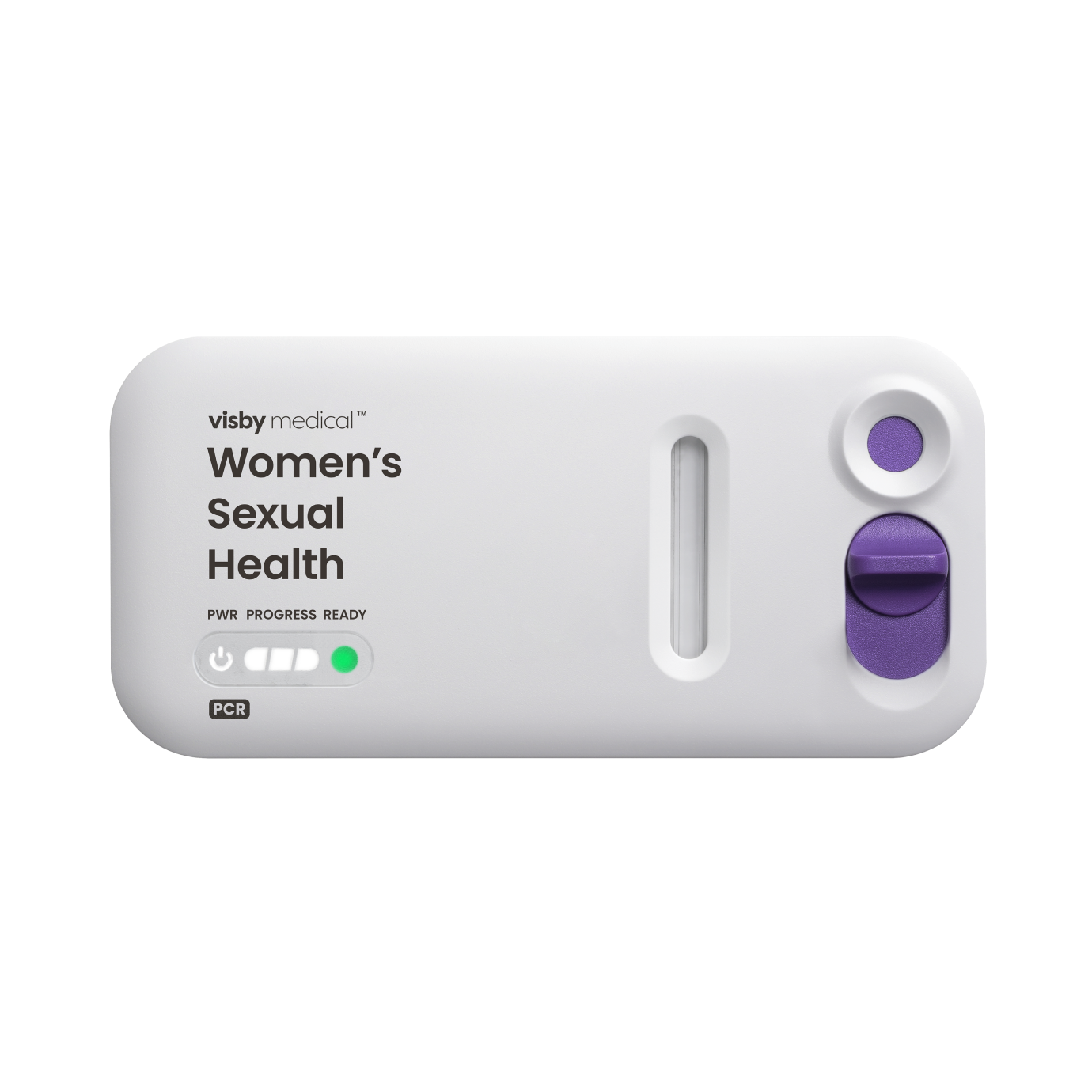
Updated November 29, 2023. Medically reviewed by Neka Miller, PhD. To give you technically accurate, evidence-based information, content published on the Everlywell blog is reviewed by credentialed professionals with expertise in medical and bioscience fields.
Table of contents
- What is a Hormonal Imbalance?
- Common Hormones That Affect Your Health
- Signs of a Hormonal Imbalance in Women
- Possible Hormone-Related Causes for Specific Symptoms
- Helpful Tips for Hormone Imbalance Symptoms in Women
- At-Home Hormone Tests and Telehealth Services
What is a Hormonal Imbalance?
ormones are chemical messengers secreted by various glands in the endocrine system. They help regulate many key body functions and processes—from sleep-wake cycles and metabolism to weight and menstrual cycles to your body’s stress response and temperature.
A hormonal imbalance occurs when normal levels and the production of hormones in your endocrine system are disrupted. This imbalance can lead to a variety of symptoms that may affect your overall well-being and quality of life. To understand and manage your hormonal health better, consider taking an at-home women’s health test, designed to provide insights into your hormonal balance and guide you towards appropriate steps you might take to address any imbalances.
Common Hormones That Affect Your Health
Focusing on hormones that significantly impact women's health, it's essential to understand how these biochemical messengers can influence well-being through every stage of life. Women's bodies produce several key hormones that regulate everything from reproductive functions to metabolism, mood, and overall physical health. Here are some of the primary hormones affecting women's health:
Estrogen and Progesterone
Estrogen and progesterone are female sex hormones that play key roles in the menstrual cycle and pregnancy—and thus affect fertility. As women approach menopause, progesterone and estrogen levels change significantly—which is often accompanied by hormonal imbalance symptoms like hot flashes, weight gain, and mood changes. In some cases, hormone replacement therapy may be recommended to help manage the symptoms of a hormonal imbalance in women.
Leptin and Ghrelin
Leptin and ghrelin help with appetite control. An increase in leptin will decrease your appetite, while an increase in ghrelin will increase your appetite. People experiencing obesity often develop a leptin resistance, potentially leading to overeating.
Thyroid Hormones
Your thyroid hormones help control your metabolism, heart rate, body temperature, and many other bodily functions. Thyroid hormones come from the thyroid gland, which is the gland that produces triiodothyronine (T3) and thyroxine (T4). If your thyroid hormone levels are too low, you may have an underactive thyroid (hypothyroidism), possibly leading to weight gain, fatigue, and other symptoms. An overactive thyroid (hyperthyroidism), on the other hand, can result in sudden weight loss, loss of bone and muscle mass, excessive sweating, and more. To monitor and understand your thyroid health better, consider using an at-home thyroid test kit, which can help you identify any imbalances in your thyroid hormone levels.
Insulin
The hormone insulin tells your body how to use energy from the foods you eat by helping blood sugar move from the bloodstream into our cells. Some people, however, are insulin resistant—due to factors like physical activity levels, diet or family history. Insulin resistance means that the body’s cells can’t properly respond to insulin, leading to a buildup of sugar in the bloodstream. This can lead to weight gain and the risk of developing diabetes and heart disease. Regular physical activity and a diet rich in nutritious foods may help reduce insulin resistance.
Could a symptom you’re experiencing be due to one of these hormones? To help you find an answer to that question, here we’ve provided a list of 21 possible hormonal imbalance symptoms—plus some natural approaches to consider trying to support your hormone health.
Signs of a Hormonal Imbalance in Women
If you're wondering how to know if you have a hormonal imbalance, it may help to know some of the most common signs of hormonal imbalance, listed here [1,2]:
- Fatigue
- Weight gain
- Increased body fat
- Irregular periods
- Cold intolerance
- Heat intolerance
- Hot flashes
- Night sweats
- Depression
- Sleep disturbance
- Low sex drive
- Mental fatigue
- Lack of concentration
- Headaches or migraines
- Bloating
- Indigestion
- Hair loss
- Infertility
- Skin issues
- Muscle pain
- Joint pain
Keep in mind that hormonal imbalance symptoms can be very different from one person to the next, and that experiencing any of the common symptoms above doesn’t necessarily mean your hormones are out of balance: something else could be causing your symptoms. So be sure you speak with your healthcare provider if you have any unexplained symptoms.
Possible Hormone-Related Causes for Specific Symptoms
Here, we’ll take a closer look at some of the symptoms listed above—and provide a few tips that may help you get to the bottom of the symptom(s) you’re experiencing.
Weight Gain
A variety of hormone-related conditions are associated with weight gain, including underactive thyroid and polycystic ovary syndrome. If you're experiencing weight gain without any change in your diet or exercise regimen, discuss this with your healthcare provider as it could be a sign of a hormone level imbalance.
Headaches
Some women suffer from headaches due to hormonal changes. [2] Consider keeping a notepad where you can write down the times and triggers of your headaches. This information may help your healthcare provider better understand what's causing your headaches.
Insomnia
When your body begins to go through perimenopause and approaches menopause, your ovaries will gradually produce lower estrogen levels and progesterone levels (both of which help promote sleep). [3] If you suspect hormonal changes may be at fault for a lack of sleep, speak with your healthcare provider and consider creating a calming bedtime routine. Wear cotton pajamas and sleep in cotton sheets to decrease night sweats. Also, try to get enough exercise and reduce your alcohol and caffeine intake.
Weak Bones
During perimenopause and menopause, decreased levels of estrogen can lead to brittle bones and fractures. To improve these hormonal imbalance symptoms, practice weight-bearing exercise (like dancing or tennis) and eat a healthy diet high in calcium and vitamin D. In some cases, your healthcare provider may recommend hormone replacement therapy to bring your body's reproductive hormones to a more balanced state.
Low Sex Drive
Falling levels of both estrogen and testosterone can lead to low libido. This is a relatively common symptom among women going through perimenopause or who have entered menopause. If you are experiencing this symptom, talk to your healthcare provider to learn about the different hormone imbalance treatment options available.
Heavy or Painful Periods
Changes in sex hormones can result in a number of unwanted symptoms. As such, a hormonal imbalance in women may lead to heavy or painful periods. During your menstrual cycle, if you have heavy or painful periods along with abdominal and lower pain, the frequent need to urinate, constipation, and/or painful sex, you may have non-cancerous growths called uterine fibroids. [4] The exact cause of uterine fibroids is unknown, but they seemed to be linked to estrogen levels. [4] Be sure to reach out to your healthcare provider to address this common symptom.
Mental Health and Mood Swings
Hormonal fluctuations can profoundly affect mental health, leading to mood swings, anxiety, and depression. This is due to hormones like estrogen and progesterone affecting brain chemicals linked to mood. Significant life phases such as puberty, pregnancy, menopause, or menstrual cycles can trigger these shifts in hormonal production. If you suspect your mental health issues are hormone-related, consult your healthcare provider for tailored advice and treatment options.
Helpful Tips for Hormone Imbalance Symptoms in Women
Here are some tips that can help support well-balanced hormones or alleviate hormone imbalance symptoms. Of course, if you do have a hormone imbalance, it's always a good idea to consult with your healthcare provider and learn what they recommend (whether it's bioidentical hormone replacement therapy or some other hormone therapy treatment approach).
Diet
If you suspect you may have a hormone imbalance, consider cutting back on sugar and refined carbohydrates like those found in chips, white bread, and sweets. Incorporate healthy fats like fish, nuts and seeds, and olive oil-as well as foods that are rich in vitamin D, like tuna, egg yolks, and fortified milk. Get enough protein, particularly in the morning, so that you can avoid overeating later in the day-and eat enough iodine (which can be found in fish, seaweed, iodized salt, and eggs) to support thyroid hormone balance. To relieve menopause symptoms due to imbalanced hormones, foods containing phytoestrogens—like flaxseed and soy—can be a good go-to.
Exercise
Exercising is important for a multitude of reasons-including keeping your hormonal imbalance symptoms in check. Getting enough exercise may keep your cortisol levels in check, help relieve chronic stress, and have a positive impact on your insulin balance and blood glucose regulation.
Vitamins and Other Supplements
Making sure you're getting enough vitamins and other nutrients is important for hormone health. Vitamin C, B6, zinc, magnesium, and antioxidants all help support normal hormone levels-so check if the food in your diet is supplying you with these nutrients. If not, consider taking supplements (but check in with your healthcare provider first).
At-Home Hormone Tests and Telehealth Services
Experience the convenience of understanding your hormonal health through our at-home Women’s Health Test, designed to analyze 10 essential hormones. It's simple: follow the instructions for sample collection, use prepaid shipping for the lab, and receive secure, online results. For further support, our women’s health telehealth services connect you with healthcare professionals to discuss your results and provide personalized advice, all from the comfort of your home. This seamless integration of testing and expert consultation ensures comprehensive care for your women's health concerns.
Related Content
How to Check If You Have a Hormonal Imbalance
A Brief Guide to Hormonal Imbalances in Women
References
- Menopause. Mayo Clinic. Medical Citation URL. Accessed August 11, 2020.
- Headaches and hormones: What's the connection? Mayo Clinic. Medical Citation URL. Accessed August 11, 2020.
- Jehan S, Masters-Isarilov A, Salifu I, et al. Sleep Disorders in Postmenopausal Women. J Sleep Disord Ther. 2015;4(5):1000212. doi:10.4172/2167-0277.1000212
- Uterine fibroids. Mayo Clinic. Medical Citation URL. Accessed August 11, 2020.
- Klok MD, Jakobsdottir S, Drent ML. The role of leptin and ghrelin in the regulation of food intake and body weight in humans: a review. Obes Rev. 2007;8(1):21-34. doi:10.1111/j.1467-789X.2006.00270.x
- Ranabir S, Reetu K. Stress and hormones. Indian J Endocrinol Metab. 2011;15(1):18-22. doi:10.4103/2230-8210.77573
- Endocrine Disruptors. National Institute of Environmental Health Sciences. Medical Citation URL. Accessed August 11, 2020.
Neka Miller, PhD holds a PhD in Molecular Pharmacology and is an experienced technical writer covering topics including pharmacology, cancer initiation, neuroscience, and traumatic brain injury. Miller has also created manuals and custom reports featuring data visualizations, protocols, method sections, and manuscripts, as well as authoring published works in scientific journals. Miller has been performing research, writing, and publishing works for over 15 years, and currently serves as the Director of Institutional Effectiveness as well as an Adjunct Professor in the Doctor of Healthcare & Education Leadership (Ed.D.) program at Clarkson College.
Spotlight on
February is Cancer Prevention Month

86% of cancers aren't caught by recommended screenings. See what they're missing with a single blood draw.
Learn more
Explore Everlywell









